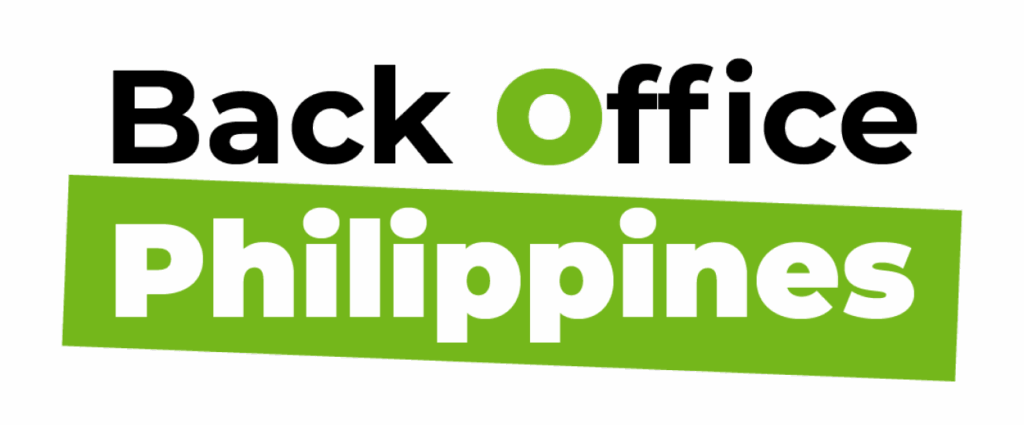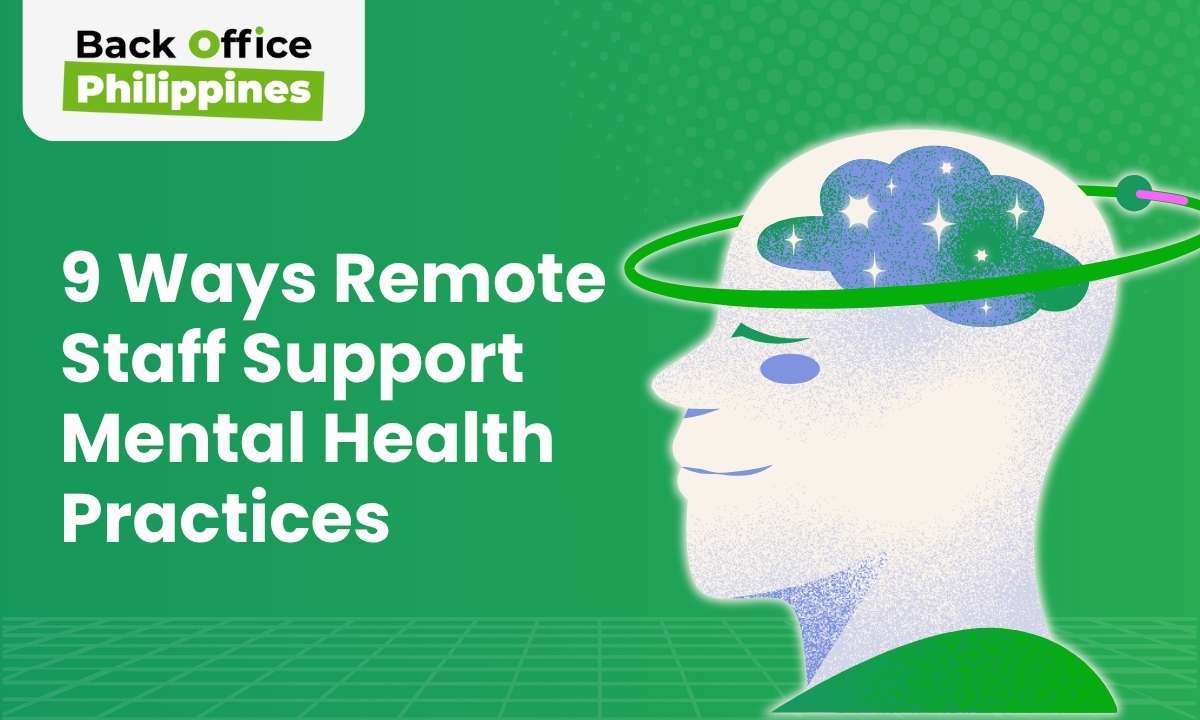Running a mental health practice today means juggling clinical care, administrative responsibilities, and patient engagement. As your practice grows, you may find it harder to keep up with everything while ensuring your patients receive the best care. That’s where building a back office remote staff team comes in.
At Back Office Philippines, we specialize in helping healthcare providers, including mental health clinics, build virtual teams that cut costs by up to 77% without compromising service quality. Our platform makes it easy to hire virtual staff for administrative, billing, and patient support roles so you can focus on providing care while we handle the operational load.
Below are 9 detailed ways remote staff can support your mental health practice, making operations smoother and patient care more consistent.
1. Streamlining Appointment Scheduling and Reminders
When you build a back office team for scheduling, you remove one of the biggest time drains from your daily routine. Scheduling assistants from Back Office Philippines are trained to handle high volumes of appointments without letting anything slip through the cracks.
Best practices for scheduling with a virtual staff:
- Use integrated scheduling software so both your clinicians and virtual staff can see updates in real time.
- Offer patients multiple scheduling channels (phone, email, online form) so booking is easy.
- Set up automated reminders, but also have your back office remote team follow up with personal confirmation calls for high-priority appointments.
Example:
A mental health clinic in California partnered with Back Office Philippines to hire two virtual scheduling assistants. Within a month, their no-show rate dropped by 35% simply because reminders were sent consistently and in a timely manner.
2. Managing Patient Intake and Onboarding
Your intake process shapes the patient’s perception of your practice. If it’s confusing or slow, patients might feel anxious before they even meet their clinician.
How your back office remote team can improve intake:
- Prepare welcome packets and send them in advance.
- Collect medical history, consent forms, and insurance information digitally.
- Verify insurance coverage before the patient’s first session.
Why it works:
Having virtual support staff dedicated to this process ensures accuracy and timeliness. This prevents delays in treatment and minimizes last-minute cancellations due to incomplete paperwork.
Example:
A small therapy practice in New York used Back Office Philippines to hire an intake coordinator. The result was a 40% faster onboarding time, freeing therapists from administrative follow-ups and giving them more time for patient care.
3. Handling Medical Billing and Claims
Billing in mental health involves understanding specific codes and ensuring compliance with insurance policies. This is not something you want to handle in between sessions.
Your virtual staff can:
- Enter billing codes accurately.
- Submit claims promptly to insurance companies.
- Track unpaid claims and follow up to ensure resolution.
Best practice tip:
Have your back office remote team run weekly reports on outstanding claims. This way, you can address issues before they cause cash flow problems.
Example:
One of our partners, a multi-location mental health group, built a back office team of three billing specialists through Back Office Philippines. They reduced claim rejections by 50% in the first quarter, which meant faster payments and less revenue loss.
4. Providing Patient Follow-Up and Support
Patients need support between sessions, whether for clarifying treatment plans or accessing community resources. Having remote staff handle this means patients feel cared for and connected.
Tasks your team can take on:
- Calling patients to confirm progress or answer non-clinical questions.
- Sending follow-up materials after therapy sessions.
- Coordinating with therapists to address urgent concerns promptly.
Why this is important:
Consistent follow-up reduces appointment drop-offs and increases long-term treatment adherence.
Example:
A family counseling center partnered with Back Office Philippines to add two follow-up coordinators. Their patient retention rate improved by 20% because patients felt supported outside of their session times.
5. Maintaining Accurate Electronic Health Records (EHR)
EHR management is not just data entry; it’s about ensuring every note is complete, accurate, and compliant. Your clinicians should be focused on patients, not on formatting progress notes.
Your back office remote team can:
- Enter notes immediately after sessions based on clinician recordings or dictations.
- Update medication lists and treatment plans.
- Perform regular audits to ensure accuracy.
Best practice tip:
Establish a clear turnaround time for updating EHRs, ideally within 24 hours of each session, so records remain current.
Example:
A psychiatric practice used Back Office Philippines to hire two remote EHR specialist staff. They reduced documentation backlog from two weeks to less than 24 hours.
6. Offering After-Hours Patient Communication
Mental health concerns don’t always wait for business hours. While clinicians should not be on call 24/7, having virtual staff available for non-emergency communication can make a big difference.
Ways to set this up:
- Offer email or chat support after hours for appointment scheduling and general inquiries.
- Create a clear protocol for escalating urgent concerns to clinical staff.
- Use a rotating schedule so your back office remote team covers evenings and weekends.
Example:
A therapy clinic implemented after-hours support through Back Office Philippines and saw a 15% increase in new patient bookings simply because inquiries were answered outside traditional office hours.
7. Supporting Telehealth Operations
Telehealth is here to stay, and having a smooth process is essential. A back office remote team can ensure every session starts on time without technical difficulties.
What your virtual staff can handle:
- Sending secure session links to patients.
- Conducting test calls to ensure technology is working.
- Assisting patients who are new to virtual therapy.
Example:
One clinic reported that before partnering with Back Office Philippines, therapists were losing up to 10 minutes per session troubleshooting tech. With remote support staff in place, sessions now start promptly, and therapists can focus entirely on patients.
8. Assisting with Marketing and Patient Outreach
Mental health practices need steady patient flow to remain sustainable. Your virtual staff can handle the marketing activities that keep your practice visible and accessible.
Tasks they can take on:
- Managing your social media profiles with compliant, relevant content.
- Sending newsletters to patients with helpful mental health tips.
- Following up with past patients who may want to resume therapy.
Example:
A counseling center partnered with Back Office Philippines to hire a part-time social media coordinator. Within six months, they saw a 25% increase in appointment requests from online channels.
9. Monitoring and Improving Operational Efficiency
Running a mental health practice means balancing clinical and operational efficiency. Your back office remote team can track metrics and identify ways to improve workflows.
Metrics they can track:
- Appointment attendance rates.
- Claims processing times.
- Average patient response time.
Example:
A small clinic used a virtual operations assistant from Back Office Philippines to track KPIs. They identified that late intake paperwork was delaying appointments and implemented a digital pre-appointment process that improved overall efficiency by 30%.
Why Choose Back Office Philippines for Your Mental Health Practice?
When you partner with our platform, you get access to highly skilled healthcare professionals ready to become part of your extended team. We help you:
- Build virtual teams tailored to your practice needs.
- Scale easily without the hassle of traditional hiring.
- Maintain HIPAA-compliance and data security.
- Cut staffing costs by up to 77%.
Our platform is trusted by healthcare providers across the USA for its reliability, cost savings, and quality.
Final Thoughts
Building a back office remote team is not just about cutting costs. It’s about creating a support system that allows you to focus on patient care while ensuring every operational detail is handled with precision.
At Back Office Philippines, we help mental health practices:
- Build virtual teams tailored to your specific roles and needs.
- Save up to 77% on staffing without sacrificing quality.
- Scale quickly as your patient base grows.
If you’re ready to see how much you could save and how efficiently your practice could run, try our Team Builder Tool or book a free consultation today.
Your patients deserve your undivided attention. Let us help you create the back office team that makes it possible.


